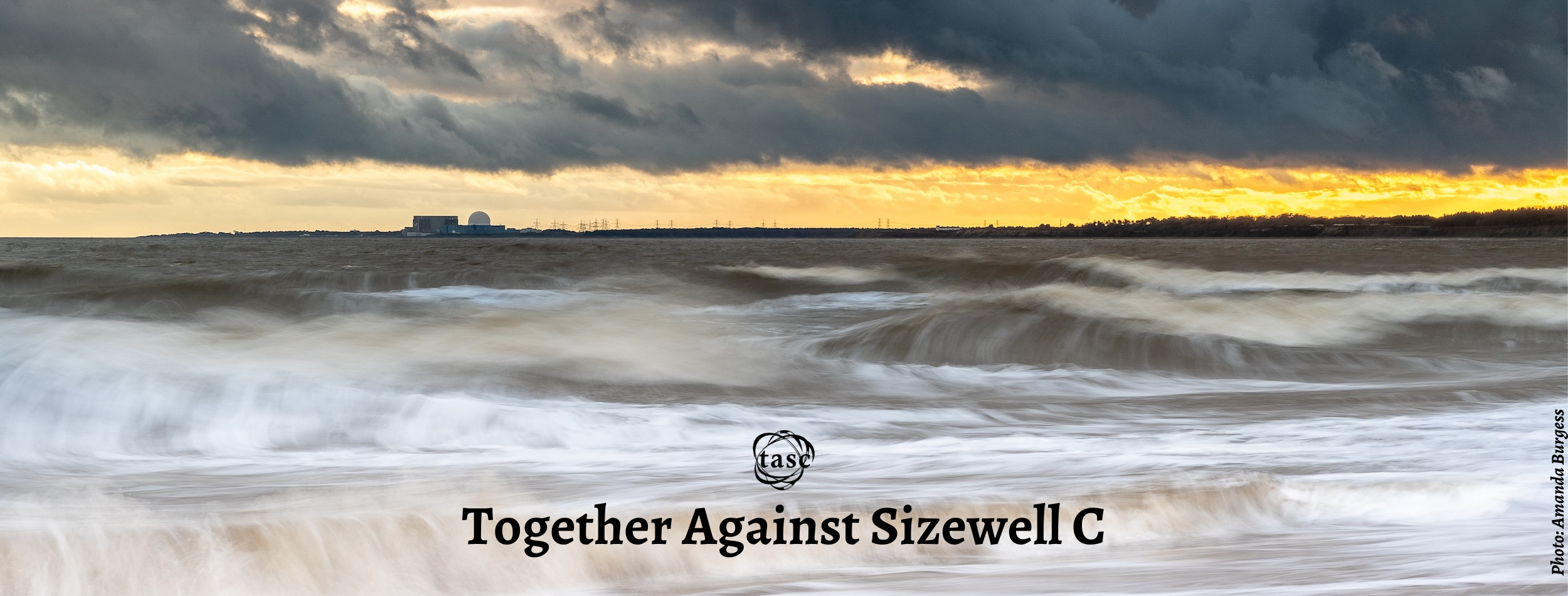
Letter to the East Anglian Daily Times in response to Sizewell C’s sponsored AD in paper.
27 January 2023
To the Editor, East Anglian Daily Times
Dr Stephen Mannings, in his touching defence of Sizewell C (EADT, Is there enough water for Sizewell C? Sponsored advertisement 20th January), scrapes the bottom of the barrel and makes some sweeping, inaccurate statements in trying to justify the development of a plant at Sizewell which is already redundant, which may not actually work and which will make massive demands on fresh and sea water, in this county, acknowledged to be the driest in the UK and facing drought.
The sponsored advertisement unsurprisingly begins with a misleading statement that the UK government has given the green light to start work on the development. Wrong. What is true is that government has taken £700m of public money and given it to EDF which is Euros 40+ billion in debt, not to start construction or ‘work’ as the sponsor craftily states in an attempt to mask the truth, but to encourage other gullible sources of funds to invest in the Sizewell White Elephant. Sizewell C still requires a raft of permits and licences before construction work can begin. Those permits, which sanction the contamination of the air, land and sea with radioactive and chemical toxins, the health effects of which are largely unknown, may not be forthcoming if the Environment Agency, uphold their stated aims to ‘protect and improve’ the environment, a claim which currently rings hollow after recent revelations about the state of our rivers. Remarks which reinforce the supposed ‘inevitability’ of the development, such as ‘given the go-ahead’, are all part of the pre-determination agenda with which the industry seeks to make opposition seem useless. Nothing is further from the truth. There is everything to play for and the stakes – the integrity of the East Suffolk environment and our way of life – are sky high.
Dr Mannings tells us that, ‘“We need to decarbonise our electricity and Sizewell C will make a massive contribution towards that goal, while providing energy security and value for customers.” Wrong, again. We all agree with decarbonising the economy, but by the time Sizewell is scheduled to generate electricity, if ever, the entire energy sector will have been totally decarbonised and ‘C’ will only be operational for a decade or so before the entire economy is at net zero in 2050 – by law. So the much-trumpeted low carbon electricity attributed to nuclear power at the expense of equal billing to the wide variety of low-carbon renewable sources of electricity will only have a few years to provide a contribution. One thing is certain, however: the contribution from Sizewell C will be far from ‘massive’ as before it can contribute to a reduction in the UK’s carbon, it has to off-set its own carbon debt of several millions of tonnes created during the plant’s 12 – 15 years (or longer) construction.
But the real purpose of the sponsored advertisement is to facilitate EDF’s pontification on the key issue which has dogged Sizewell C for more than a decade, although it has only recently been acknowledged as a problem which could yet scupper the entire enterprise, and that is how to defend the indefensible: justifying the daily demand of an average of 2.2 million litres of precious drinking water in an ultra-dry area for cooling purposes and for driving Sizewell C turbines with steam when the entire county is in danger of running out of water for homes, for hospitals and for other domestic uses. The risk of drought will be increased if Sizewell C is built.
If Sizewell C was an absolute imperative without which the lights would go out, then perhaps the demand for potable water for a nuclear development might be justified. But nothing could be further from the truth. Nuclear power is an option, and a bad one at that, not an imperative. We can do without it. It is now widely accepted among energy consultants and experts that we could, and should, meet all our projected electricity demands through a combination of a national programme to reduce demand – an aspect of the energy debate which is now finally getting some government attention – the rapid deployment of renewable technologies such as on- and off-shore wind, tidal barriers, combined heat and power (CHP) technology, roof-top solar coupled to decentralised electricity generation and the ploughing of money currently earmarked for nuclear into the development of electricity storage technology. Apart from being far cheaper and quicker to deploy, renewables have an advantage over nuclear which we ignore at our peril: the raw material which drives renewable technologies – wind, sun, tides, waves – arrives at the generating hardware totally free of charge – no mining, no processing, no waste, transport, – and at the other end of the process, no radioactive waste legacy to hand on to future generations.
Dr Mannings tells us that, ‘Desalination is little-known in the UK but is a tried and tested technology that’s been used successfully for decades in places such as the Middle East.’ He fails to mention that it is also a technology which has been examined and rejected by EDF itself as too costly, too energy intensive and too polluting. Yet suddenly, it is being promoted as ‘successful’ and the answer to EDF’s embarrassment, a sticking plaster to protect the company’s Achilles Heel. Desalination is no answer to Suffolk’s endemic water problem. We all have to learn that to permanently solve environmental problems we have to recognise the limitations of the environment on which we depend. That means reducing demand on the bounty our county offers rather than pressing ahead with technologies which manifestly demand that the environment provides for us beyond its means. The environment is not a convenient dumping ground for the detritus generated by inappropriate and redundant technologies such as nuclear power. It is finite, fragile and precious. Unless we recognise those facts and act to reduce our environmental footprint, the collapse of the life support systems on which we all depend is inevitable. Nuclear power brutalises and perpetuates our assault on the environment. To reverse that trend, we could start by telling EDF the bald truth – that Suffolk has no water to spare for its White Elephant.
Sincerely
Pete Wilkinson TASC

